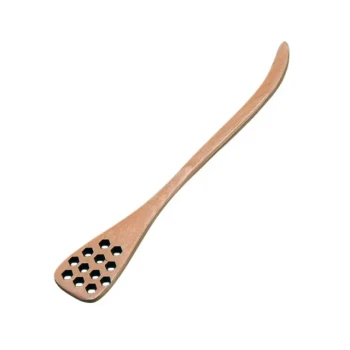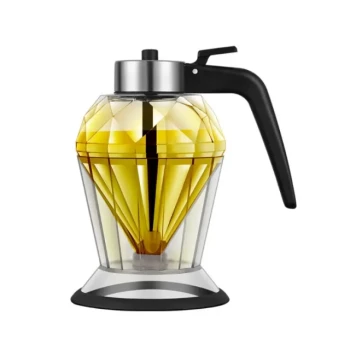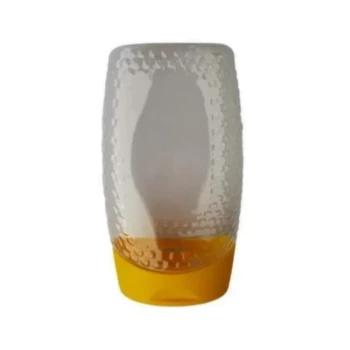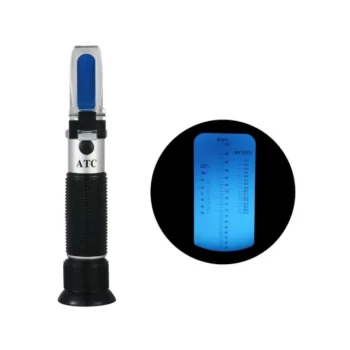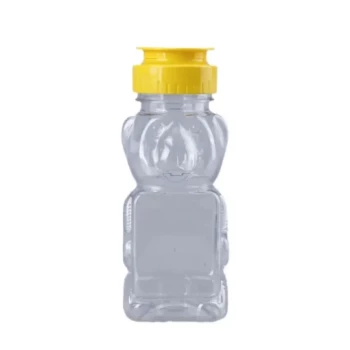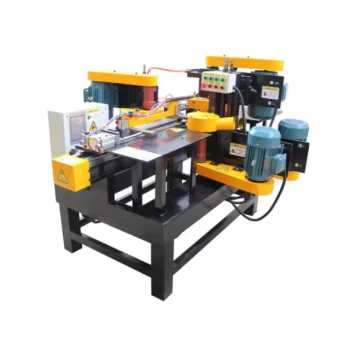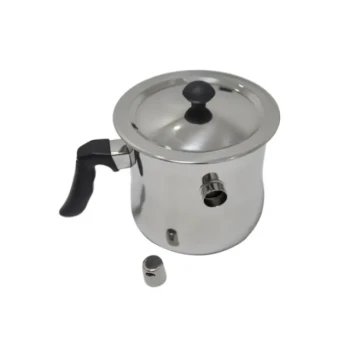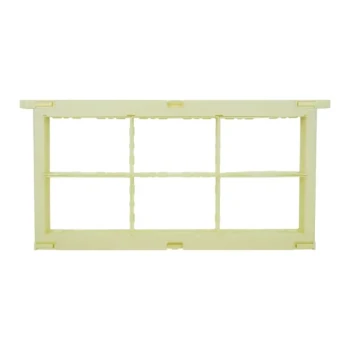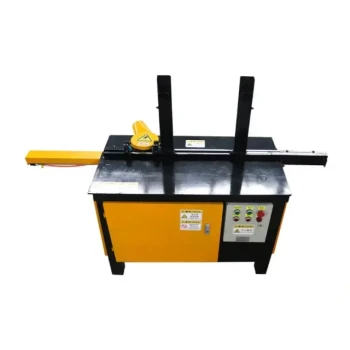When choosing a honey press, the primary factors to consider are its material, extraction efficiency, and features that impact the final quality of your honey. A well-chosen press maximizes your yield from comb that cannot be processed in a traditional extractor, making it a valuable tool for capturing every last drop of your harvest.
The decision to invest in a honey press is about maximizing yield and streamlining the "crush and strain" method. The right choice moves beyond simple capacity and focuses on features that preserve honey quality, improve workflow, and ensure long-term durability.
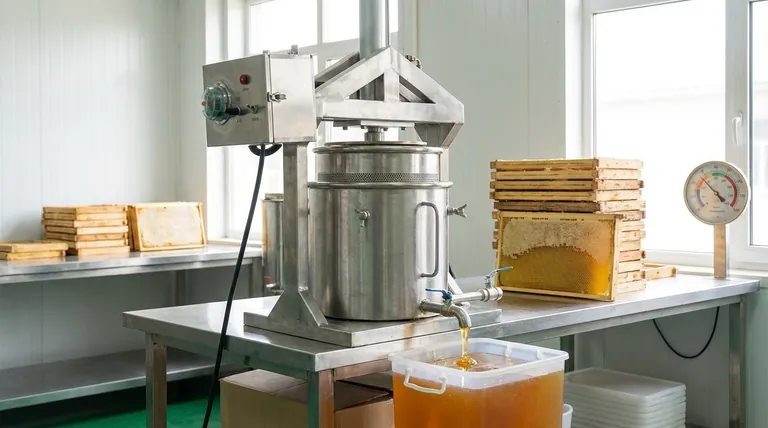
Core Features of an Effective Honey Press
A honey press is a straightforward machine, but specific features distinguish a merely functional tool from a truly effective one.
H3: Material and Construction
The best honey presses are made of food-grade stainless steel. This material is non-reactive, ensuring it won't impart any off-flavors to your honey.
Stainless steel is also durable and, most importantly, very easy to clean. Look for a compact design that is easy to store, as this equipment is only used during specific times of the year.
H3: Variable Pressure Control
Some models offer variable pressure control, allowing you to customize how quickly and forcefully you press the comb.
This feature is highly beneficial. Applying gradual pressure can be more efficient and prevent blowouts, giving you more control over the extraction process based on the wax's temperature and consistency.
H3: Integrated Filtering Systems
Higher-end presses may come with a built-in filtering system. This feature separates the liquid honey from beeswax particles and other impurities during the extraction itself.
An integrated filter significantly streamlines your workflow, helping to produce clean, high-quality honey that is nearly ready for bottling right out of the press.
Optimizing Your Honey Press Workflow
Beyond the press itself, your process is critical for achieving the best results. The right technique saves time and improves your final product.
H3: The Critical Role of Temperature
For optimal results, only press honeycomb that is at least 80°F (26.7°C) or warmer. Warm honey flows easily, dramatically reducing the time it takes to strain.
If the ambient temperature is below 70°F (21.1°C), the process can take several days. Be careful not to overheat the comb, as excessive heat can degrade its delicate flavors and nutritional value.
H3: Preparation is Key
Before loading the press, crush the comb first. This initial step breaks up the cells and makes the pressing stage much more efficient.
For stability and safety, it is highly recommended to bolt the press to a sturdy table or workbench. This prevents it from shifting under the high pressure required for extraction.
H3: Maintenance and Cleanup
Before each use, lightly oil the press screw with a food-grade grease or oil to ensure smooth operation.
After you're finished, clean the press promptly with warm water and a soft nylon brush. Letting wax and honey harden will make cleanup significantly more difficult.
Understanding the Trade-offs
A honey press is a specialized tool. Understanding its specific role and limitations is key to making a wise investment.
H3: Press vs. Centrifugal Extractor
A honey press is designed for the crush-and-strain method. It is perfect for processing uncappings, burr comb, or any comb you do not intend to return to the hive.
It is not a replacement for a centrifugal extractor, which is used to remove honey from frames while leaving the drawn comb intact for the bees to reuse. These two tools serve different, complementary purposes.
H3: Manual Effort and Scale
While a press is more efficient than crushing comb by hand, it is still a manual process. It requires physical effort to turn the screw and process the comb in batches.
The size of the press should match your scale of operation. A small press is ideal for a hobbyist with a few hives but would quickly become a bottleneck for a larger, sideline beekeeping business.
Making the Right Choice for Your Goal
Select a honey press based on your primary objective as a beekeeper.
- If your primary focus is simplicity and small-scale harvesting: Choose a compact, all-stainless-steel press that is easy to clean and store.
- If your primary focus is maximizing every drop of honey: Invest in a press with excellent variable pressure control to gently and thoroughly extract from all types of comb.
- If your primary focus is efficiency and honey purity: Select a model that includes an integrated filtering system to reduce your processing time and effort.
Ultimately, the right honey press is a valuable asset that turns wax cappings and broken comb from a difficult chore into a rewarding part of your harvest.
Summary Table:
| Feature | Importance | Key Consideration |
|---|---|---|
| Material | Honey Quality & Durability | Food-grade stainless steel for non-reactive, easy cleaning. |
| Pressure Control | Extraction Efficiency | Variable pressure for gentle, thorough extraction. |
| Filtering System | Workflow & Purity | Integrated filter for cleaner honey, less post-processing. |
| Temperature | Process Efficiency | Press comb at 80°F (26.7°C) or warmer for optimal flow. |
Ready to streamline your crush-and-strain process and maximize your honey yield? At HONESTBEE, we supply durable, efficient honey presses and other essential beekeeping equipment to commercial apiaries and distributors. Our wholesale-focused operations ensure you get the reliable tools you need to enhance your harvest. Contact our team today to discuss your equipment needs and boost your operation's efficiency.
Visual Guide
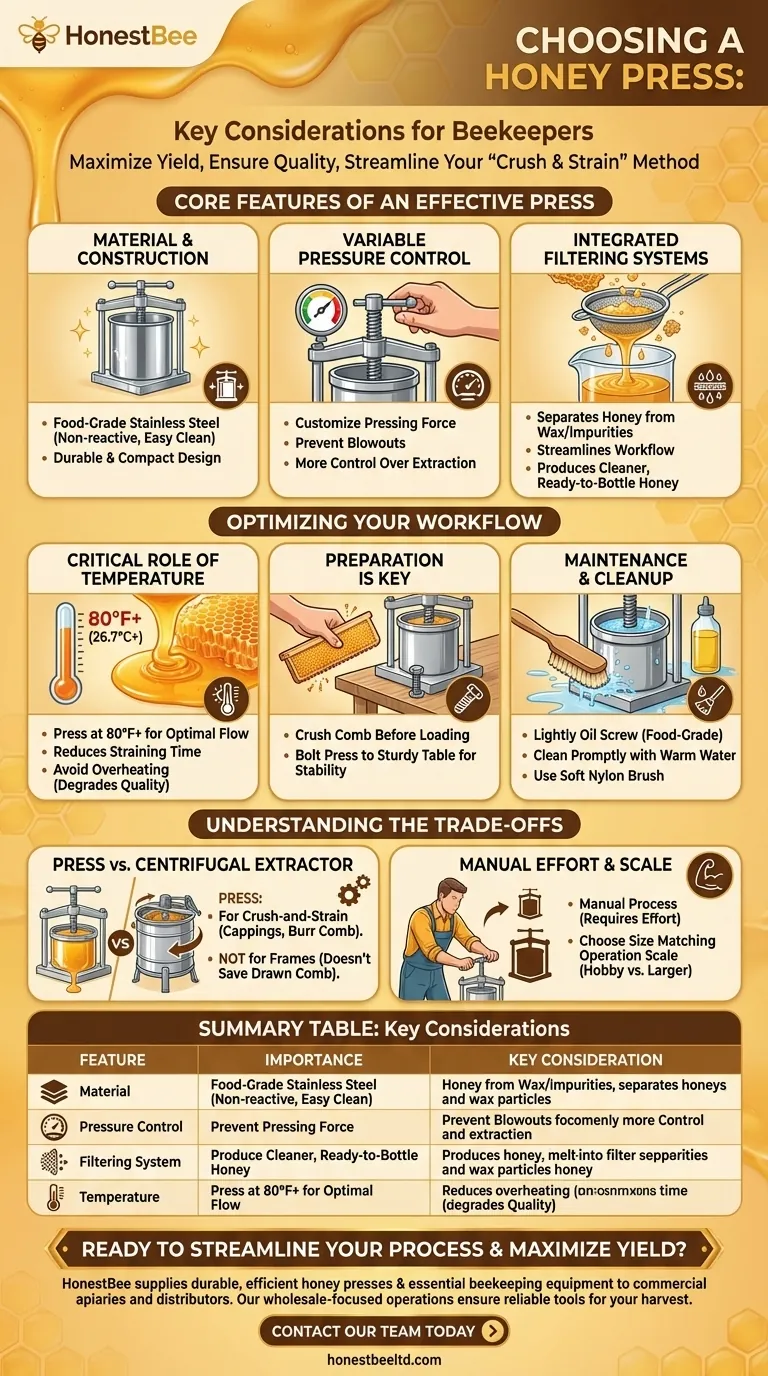
Related Products
- Electric Honey Press Machine for Squeezing Honey Comb Press Equipment
- 10L Stainless Steel Electric Honey Press Machine
- Stainless Steel Manual Honey Press with Guard for Pressing Honey and Wax
- Stainless Steel Honey Press Wax Press with Tank
- Easy Use Manual Stainless Steel Honey Press for Honey Comb
People Also Ask
- What are the end products of using a honey press? Pure Honey and Valuable Beeswax
- How does using a honey press affect comb integrity and subsequent honey production? Balancing Yield and Quality
- Can the Honey Press be used for purposes other than honey extraction? Unlock Its Versatility for Juicing & Herbal Projects
- How can one safely handle the sharp edges of a new steel press? Preparation Tips for Beekeeping Tools
- What additional uses does a honey press have? Beyond Extracting Honey from Irregular Comb
- What is the technical necessity of beeswax extractors? Unlock High-Value Beekeeping Byproducts for Global Markets
- How to get honey out of frames without an extractor? A Guide to the Crush & Strain Method
- What are the potential drawbacks of honey produced using a honey press? Navigate Quality & Market Challenges







